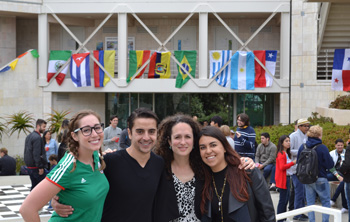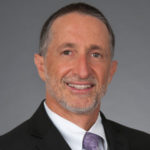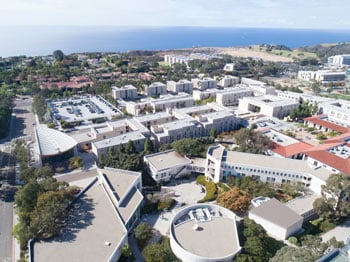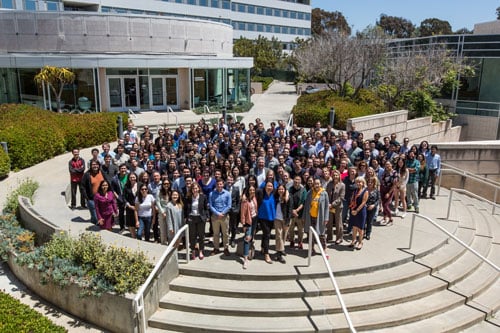2019 Launching a Career in International Affairs
THIS GUIDE IS NO LONGER ACTIVE. For the current FP Guide, click here.
UC San Diego,
School of Global Policy and Strategy
Opportunities for UC San Diego School of Global Policy and Strategy (GPS) graduates remain strong despite recent shifts in the climate for launching a career in international affairs. In fact, employment rates for the GPS class of 2017 are the highest seen in the last decade: 97 percent of graduates have found relevant employment.
 “We’ve had more students indicate interest in local, state, and municipal government than in the past,” says David Robertson, director of career services. Thanks to the strong analytical and econometrics skills of GPS graduates, city and state governments, auditors, and public utilities often hire them to do research analysis.
“We’ve had more students indicate interest in local, state, and municipal government than in the past,” says David Robertson, director of career services. Thanks to the strong analytical and econometrics skills of GPS graduates, city and state governments, auditors, and public utilities often hire them to do research analysis.
“Our program is known for its heavy quantitative focus, and our students develop strong data analysis skills,” notes Robertson.
The school’s long-established Master of International Affairs (MIA) program attracts U.S. and international students. The Master of Public Policy (MPP) program focuses on U.S. policymaking within a global context. Its specialization options are tied to areas of growing employment demand, such as environmental policy, business, health, and security.

“Our program is known for its heavy quantitative focus, and our students develop strong data analysis skills.” –David Robertson, Director of Career Services, UC San Diego School of Global Policy and Strategy
Students in the MPP program tend to be interested in policy-oriented jobs. While many gravitate to D.C. and to opportunities with U.S. intelligence agencies, GPS is also in a prime location for job opportunities in California and other western states—particularly in the technology sector and in careers involving sustainable energy and environmental policy.
 “California leads in the tech sector and in environmental and renewable energy,” says Robertson. “Federal EPA hiring has slowed, but our graduates are pursuing environmental policy careers in the nonprofit sector and in local government.”
“California leads in the tech sector and in environmental and renewable energy,” says Robertson. “Federal EPA hiring has slowed, but our graduates are pursuing environmental policy careers in the nonprofit sector and in local government.”
Sixty percent of GPS graduates work in the private sector, including multinational employers such as AECOM, Booz Allen Hamilton, Citi, Deloitte, KPMG, Maersk, and Qualcomm.
While many students enter GPS with an eye toward careers in international development, they discover opportunities in business development, marketing, and government affairs. Supply-chain analysis and financial-data analysis are among the wide range of career opportunities.
Beyond the private sector, a number of GPS graduates have joined the World Bank, the World Wildlife Fund, and U.S. government agencies such as the CIA, the Department of Homeland Security, and the Governmental Accountability Office.
For class of 2017 graduates employed in the U.S., starting salaries averaged $69,000 in the private sector, $60,000 in the public sector, and $53,360 in the nonprofit and multilateral sectors.
 In searching for internships and jobs, students can draw on a network of more than 3,000 GPS alumni spanning 81 countries. Many also build ongoing relationships with members of the school’s Alumni Mentor Program.
In searching for internships and jobs, students can draw on a network of more than 3,000 GPS alumni spanning 81 countries. Many also build ongoing relationships with members of the school’s Alumni Mentor Program.
In the GPS Alumni-in-Residence program, selected alumni spend an academic quarter on campus and keep office hours. Students can meet regularly with alumni working in their area of interest.
GPS also leads visits to organizations based in Southern California and offers annual student trips to San Francisco; Sacramento, Ca.; New York City; Washington, D.C.; and other cities, where alumni often host group visits with their employers.
Visit the Request Info page to receive more information.

